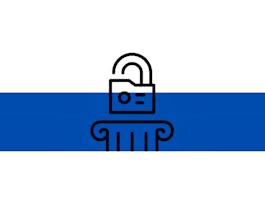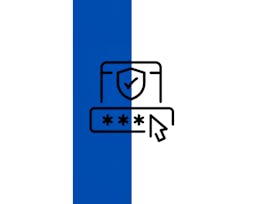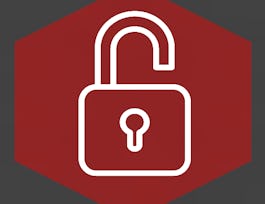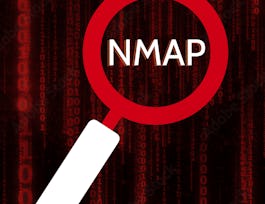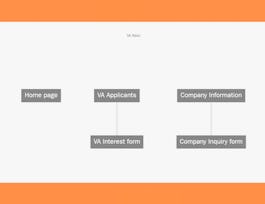Computer Security and Networks
network security, cybersecurity, risk management, and cryptography....
Earn Your Degree
Most Popular Courses
Leverage AI and build the skills needed to go from newbie to pro while earning a credential.

Master new skills with AI-powered guidance
Get interactive, on-demand assistance that’s tailored to your unique goals.

Top Rated Courses
Design and Implement Networks at Home and at Work
Launch Your Career
IT and Cybersecurity for Business Leaders
Most Popular Certificates
Cybersecurity Fundamentals: Protect Yourself and Your Data
Recently Launched Guided Projects
Get a Head Start on Your Degree Today
Secure Your Company's Networks and Systems
Frequently Asked Questions about Computer Security and Networks
Computer security and networks courses examine how to create secure computing hardware and software data systems, for example through managing access to the network and stopping threats from entering or spreading through it. While information technology or IT security is a broad topic covering the protection of data in any form, whether online or on paper, computer security and networks courses look at cybersecurity - a subset of IT security focused exclusively on the security of electronic data systems.
As more and more of our sensitive personal and business data is stored on the internet, cybercrime has become an everyday threat that no one can afford to ignore. Computer network security specialists help companies and consumers with prevention of data theft, credit card information breaches and other financial fraud, and loss of identity including social security numbers or other PII (personally identifiable information).
Cybersecurty careers usually begin with basic computer programming skills, which help to understand potential system vulnerabilities as well as develop countermeasures and contingency plans. Key programming languages to understand include C, C++, PHP, Perl, Java, and Shell.
More specialized skills to acquire include intrusion detection and malware analysis. Intrusion detection skills require developing and/or deploying software that stays a step ahead of hackers trying to steal data via increasingly sophisticated techniques like trojan horses, rootkits, and backdoor codes. When malware is detected in the system, malware analysis is the process of determining its functionality, origin and potential impact.
Cybersecurity specialists are highly sought after IT professionals, since they possess skills critical for protecting businesses and their customers online. Examples of high-demand computer security and networks jobs found at many companies are security administrator, software security engineer, information security officer, information security analyst, and risk analyst, along with more specialized jobs like cryptographer and penetration tester. Some roles may be associated with specific certifications, like certified information security manager or certified information security systems professionals.
Much of cybersecurity education is focused on understanding the architecture of the communication networks to be protected, such as computer networking, cloud computing, system administration, and embedded systems. Other courses help learners develop skills in key security technologies, such as cryptography and blockchain. And there are emerging opportunities to learn how to manage security for IoT (Internet of Things) with Raspberry Pi and other devices.
You can also study cybersecurity topics as part of online Master's in Computer Science (MSc) degrees from top-ranked schools like Arizona State University and the University of Illinois. Best of all, all of these online courses and degree programs can be completed at an affordable price, on a flexible schedule, and from wherever you are in the world.
In addition to courses, Coursera offers short Guided Projects to help you practice and hone your skills.
Before starting to learn computer security and networking, you might want to have a basic grounding in information technology concepts and applications, networking fundamentals, computer hardware and software, and a good idea of what cloud networking is and how it works. The field of computer security is so broad and established now that your skills and experience should not only encompass computer-centric topics, but also industry-specific information. For example, if you’re working in computer software for a financial institution, you might want to have skills and experience in fintech topics, like blockchain, cryptocurrency, cryptography, and more.
The kind of people best suited for roles in computer security and networking might include detailed, organized engineers who have worked in many facets of the industry, from software development, data science, network infrastructure, cloud networks, LAN/WAN management, and related areas. These experienced technicians are often well educated, highly-skilled, process-focused, and aware of the issues and challenges that a computer network can face.
Some of the topics that you can study that are related to computer security and networking include computer hardware, computer systems, information security, web development, cloud infrastructure, cybersecurity, and risk assessment. All of these areas have insights that can benefit you as you learn more about computer security and networking.
Common career paths for someone in computer security and networking may include starting in roles like systems design, security audit, cybersecurity, and computer programming. From these early roles, a common career path might move upward toward senior information security analysts or managers, whose jobs would involve the day-to-day management and work around software for firewalls and data encryption programs to protect data and other information. In addition, people working in these roles would also monitor networks for security breaches and investigate any data violations as they occur. These roles are integral to maintaining a secure data environment and efficient computer security and networking for a company.
Online Computer Security and Networks courses offer a convenient and flexible way to enhance your knowledge or learn new Computer Security and Networks skills. Choose from a wide range of Computer Security and Networks courses offered by top universities and industry leaders tailored to various skill levels.
When looking to enhance your workforce's skills in Computer Security and Networks, it's crucial to select a course that aligns with their current abilities and learning objectives. Our Skills Dashboard is an invaluable tool for identifying skill gaps and choosing the most appropriate course for effective upskilling. For a comprehensive understanding of how our courses can benefit your employees, explore the enterprise solutions we offer. Discover more about our tailored programs at Coursera for Business here.
What Coursera Has to Offer
| Learning program | Description |
|---|---|
Guided Project | Learn a job-relevant skill that you can use today in under 2 hours through an interactive experience guided by a subject matter expert. Access everything you need right in your browser and complete your project confidently with step-by-step instructions. |
Project | Learn a new tool or skill in an interactive, hands-on environment. |
Course | Take courses from the world's best instructors and universities. Courses include recorded auto-graded and peer-reviewed assignments, video lectures, and community discussion forums. When you complete a course, you’ll be eligible to receive a shareable electronic Course Certificate for a small fee. |
Specialization | Enroll in a Specialization to master a specific career skill. You’ll complete a series of rigorous courses, tackle hands-on projects, and earn a Specialization Certificate to share with your professional network and potential employers. |
Professional Certificate | Whether you’re looking to start a new career or change your current one, Professional Certificates on Coursera help you become job ready. Learn at your own pace from top companies and universities, apply your new skills to hands-on projects that showcase your expertise to potential employers, and earn a career credential to kickstart your new career. |
MasterTrack® Certificate | With MasterTrack® Certificates, portions of Master’s programs have been split into online modules, so you can earn a high quality university-issued career credential at a breakthrough price in a flexible, interactive format. Benefit from a deeply engaging learning experience with real-world projects and live, expert instruction. If you are accepted to the full Master's program, your MasterTrack coursework counts towards your degree. |
Degree | Transform your resume with a degree from a top university for a breakthrough price. Our modular degree learning experience gives you the ability to study online anytime and earn credit as you complete your course assignments. You'll receive the same credential as students who attend class on campus. Coursera degrees cost much less than comparable on-campus programs. |











